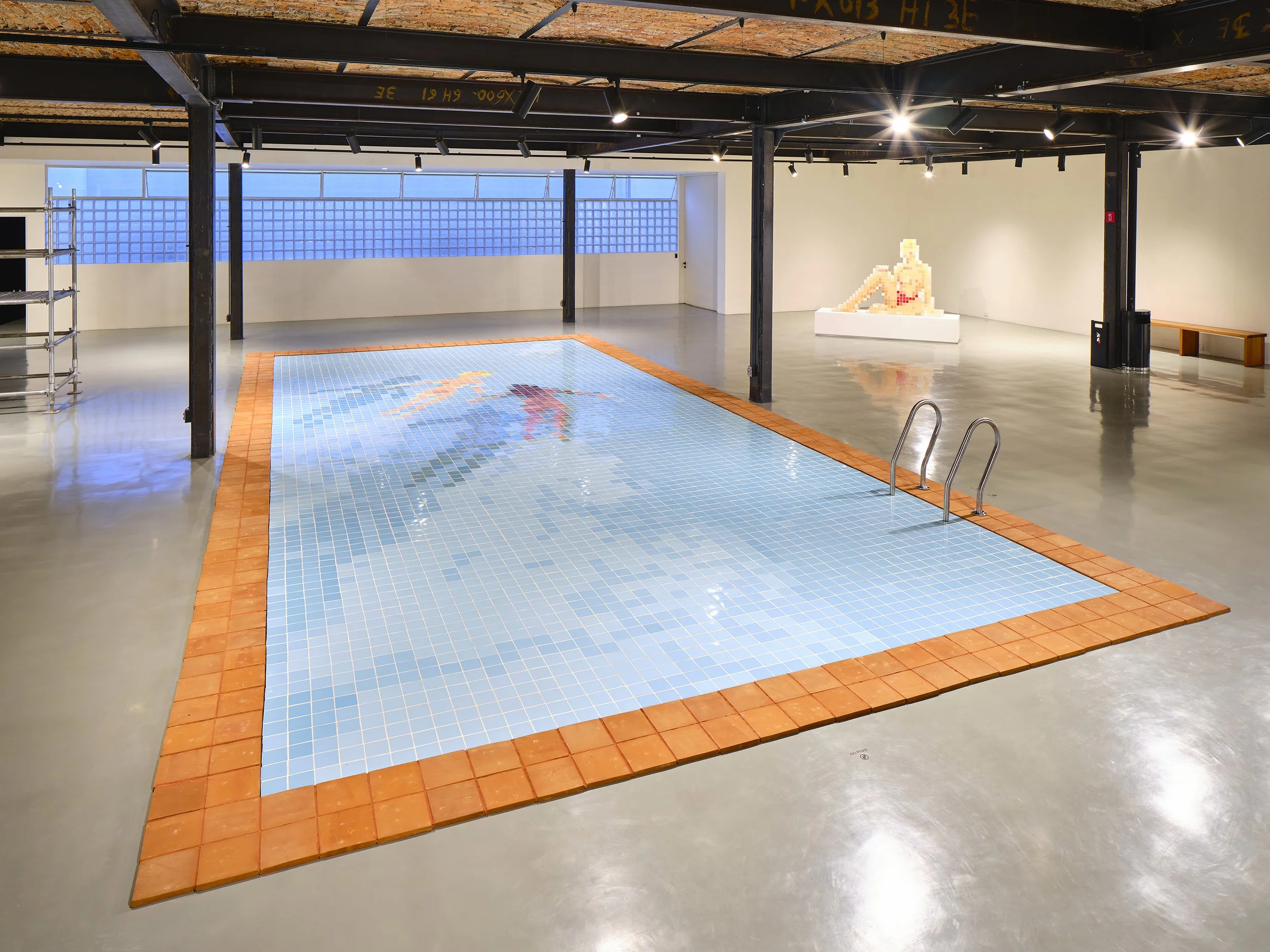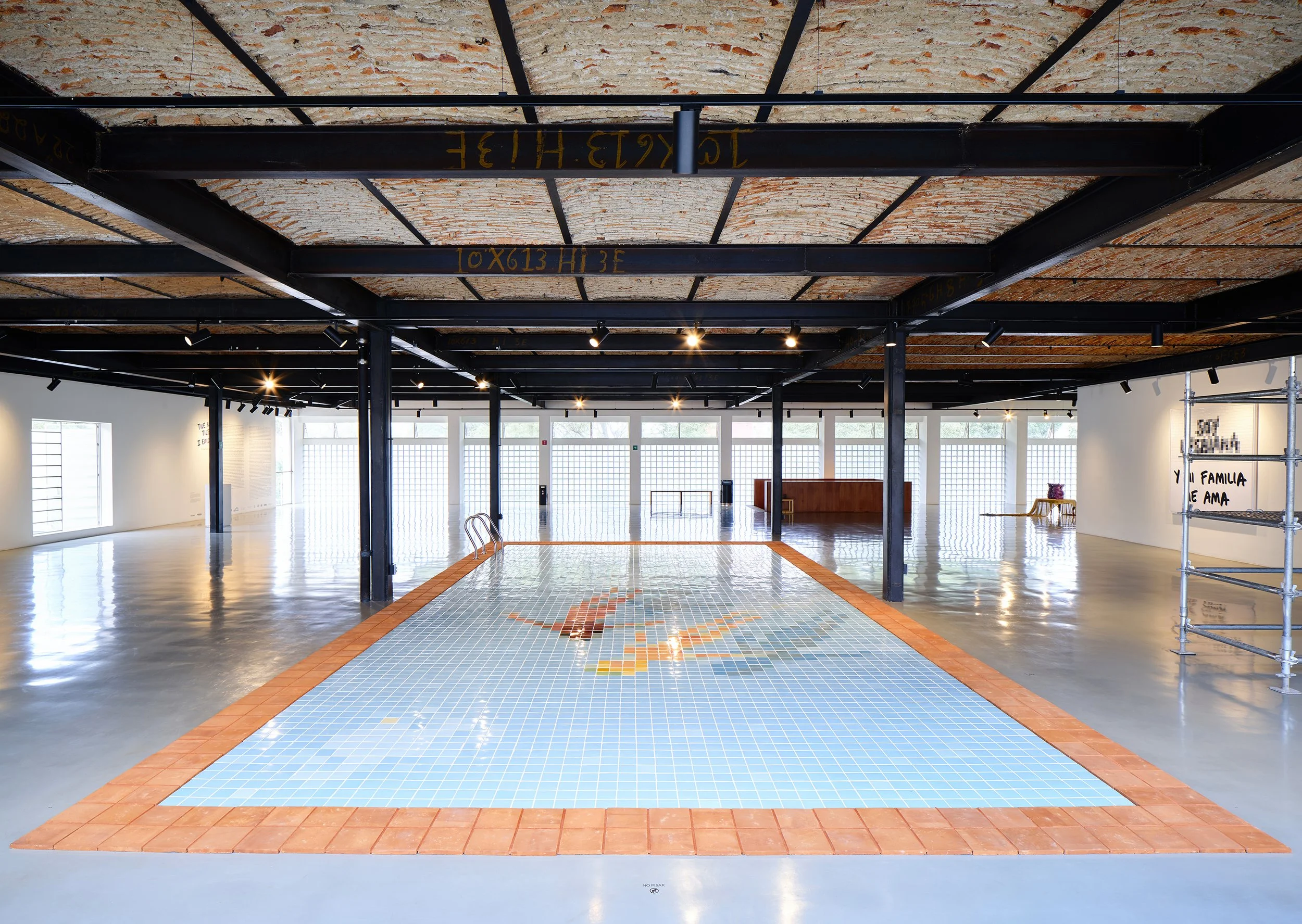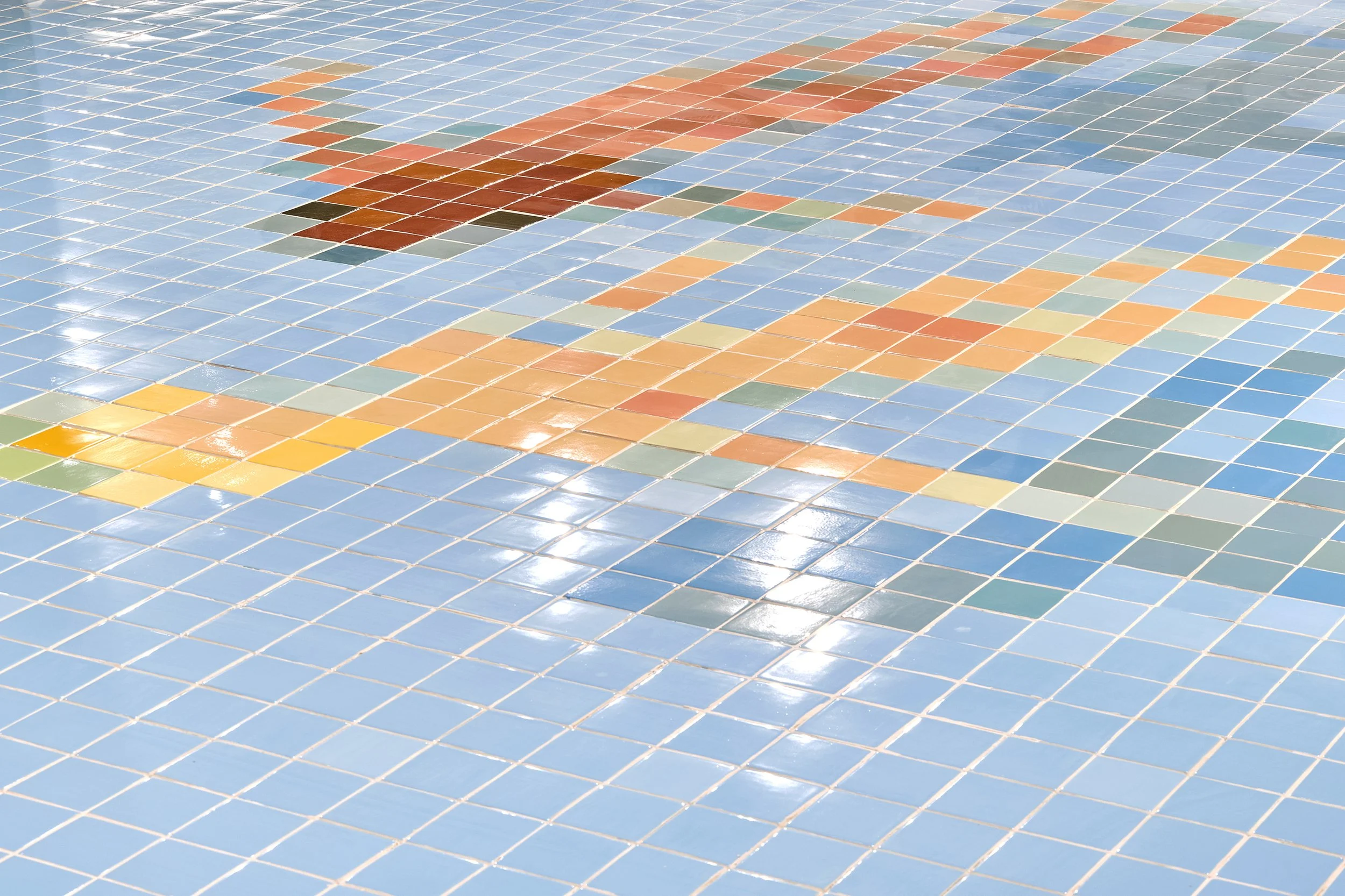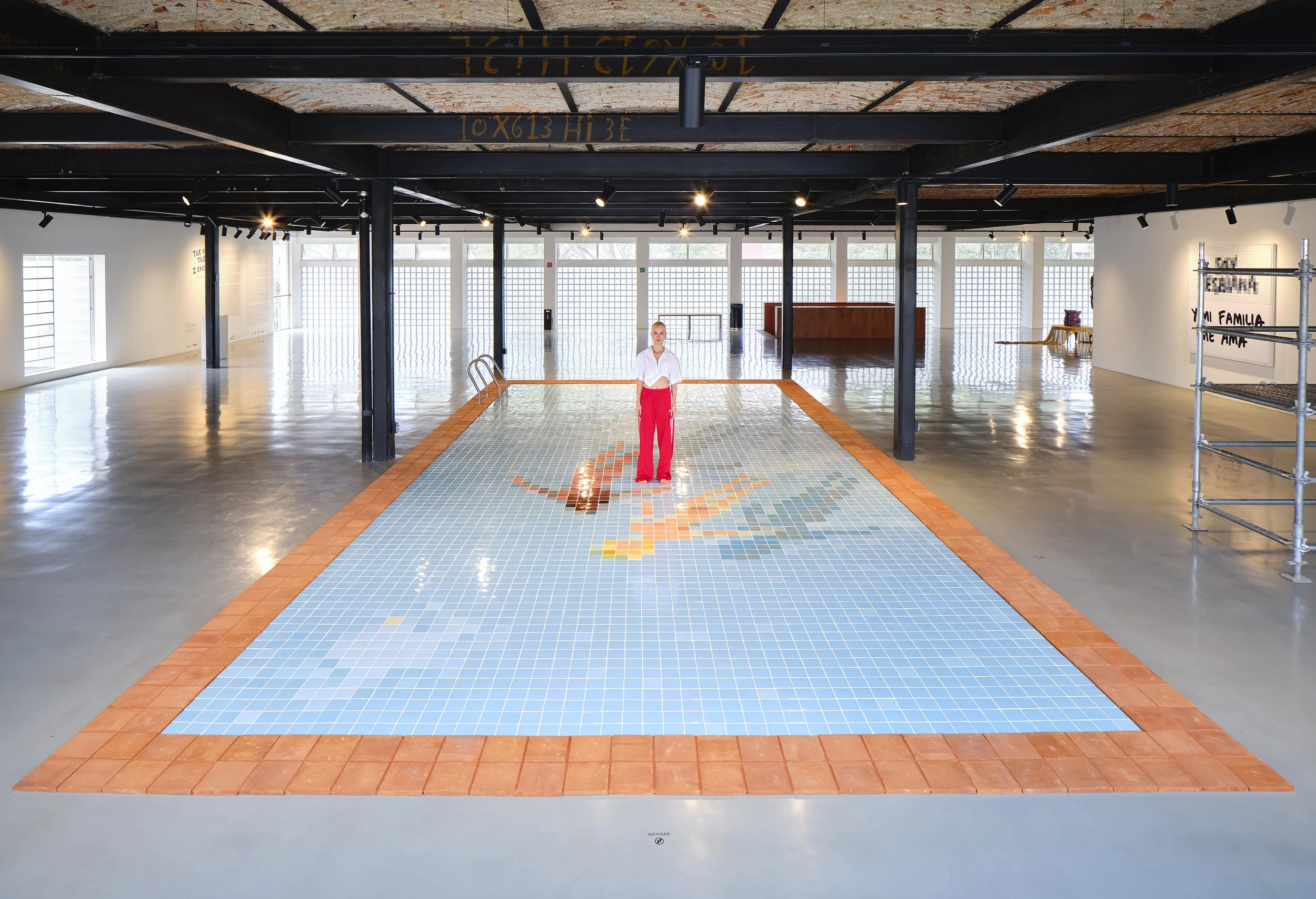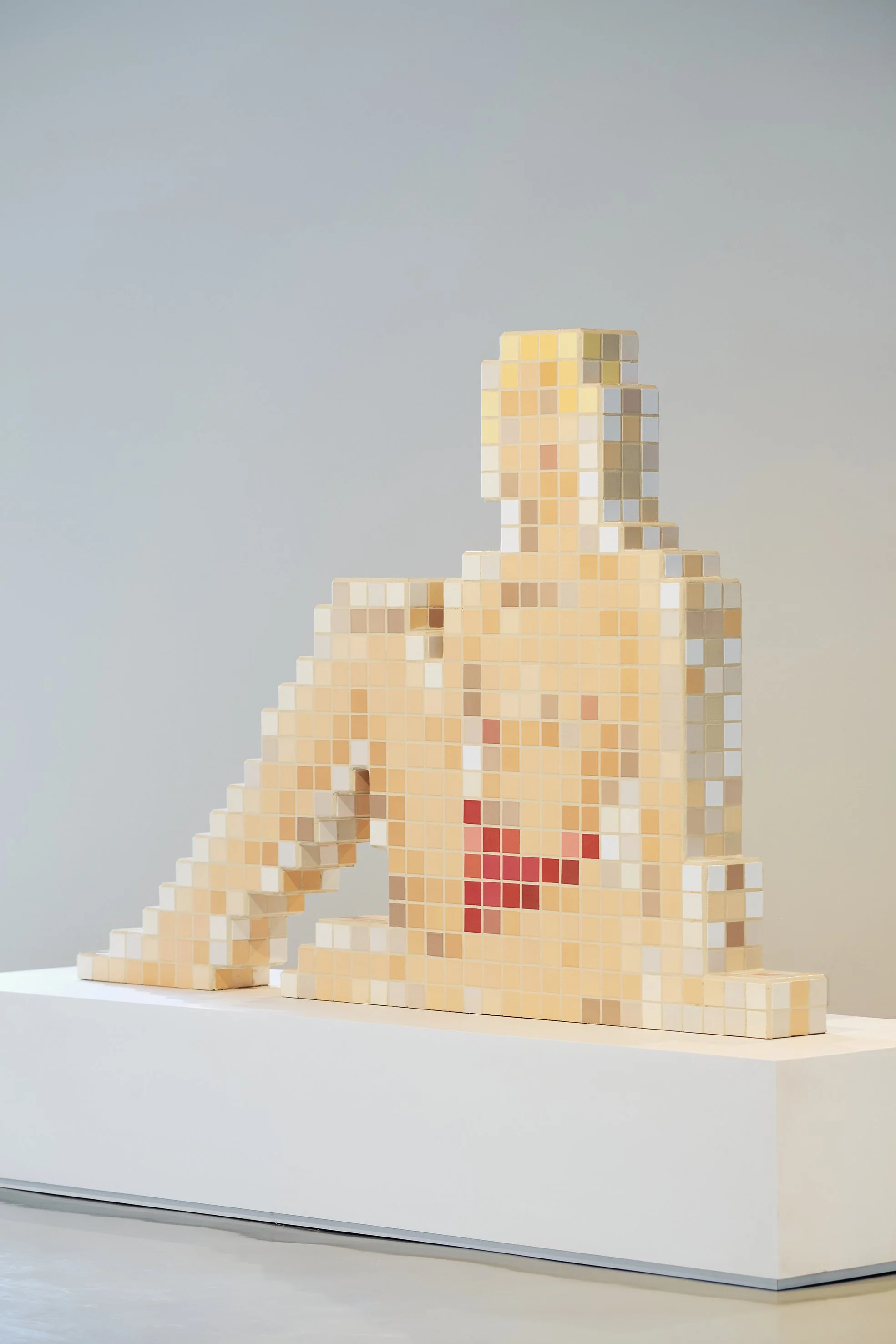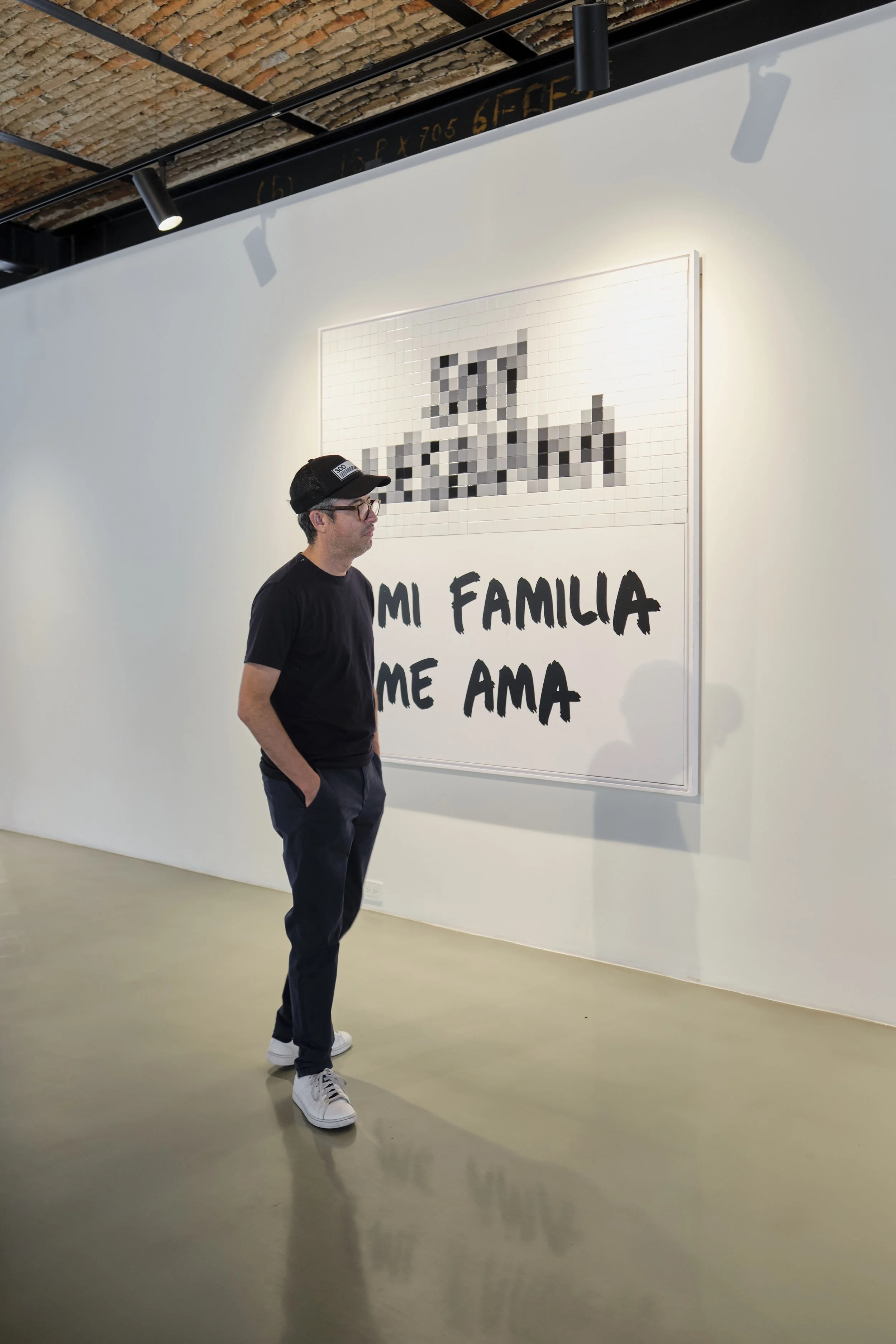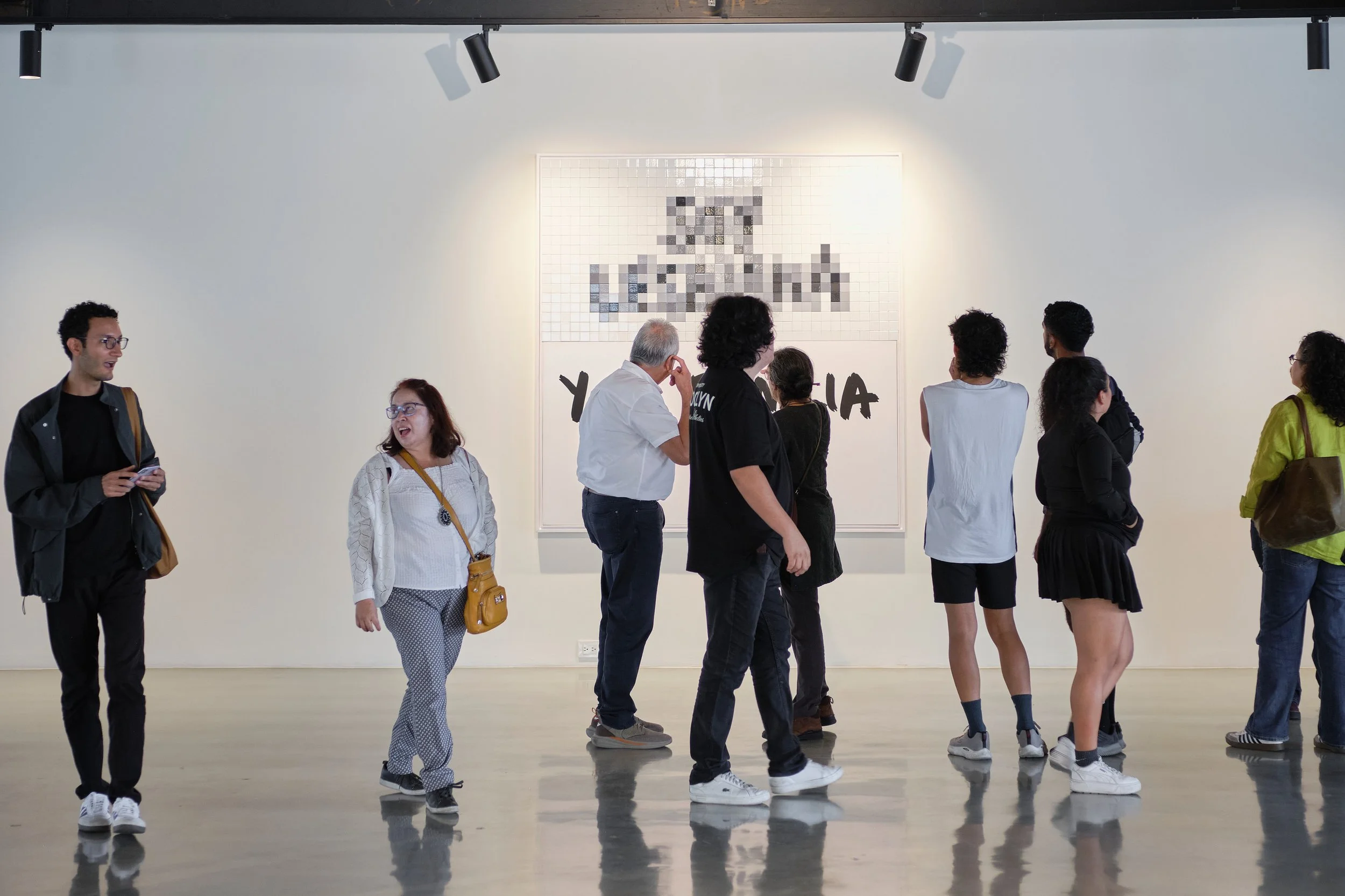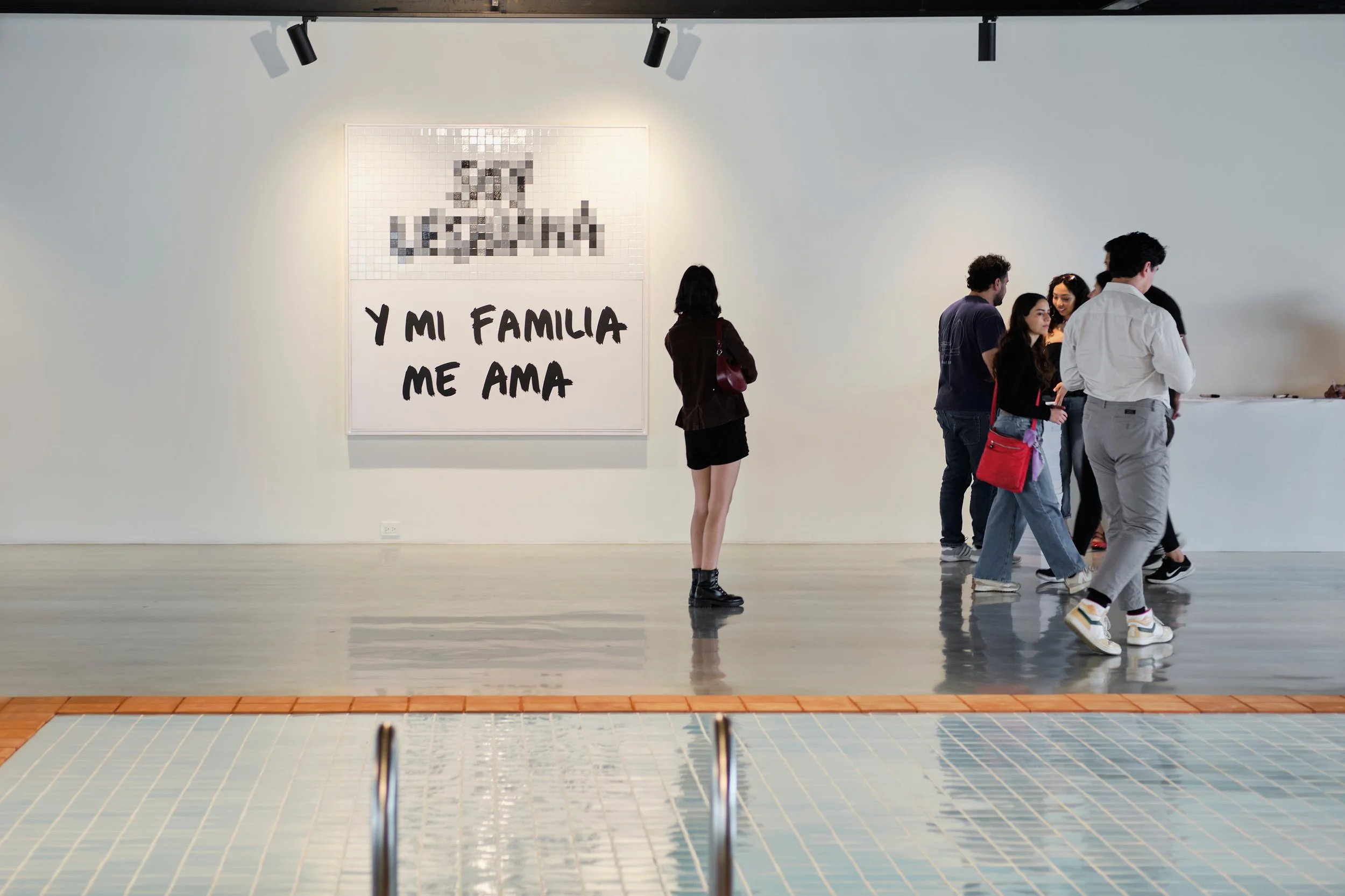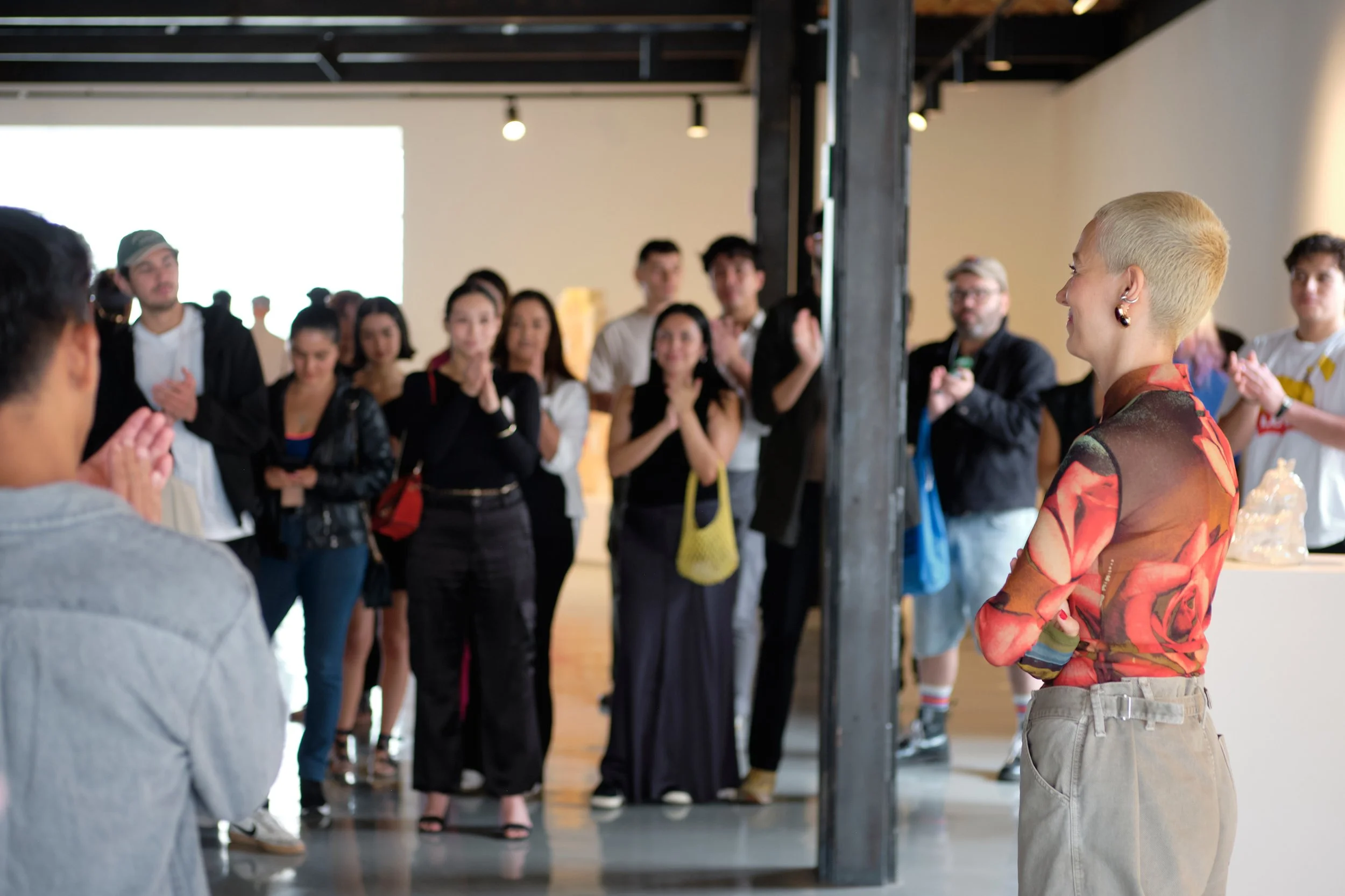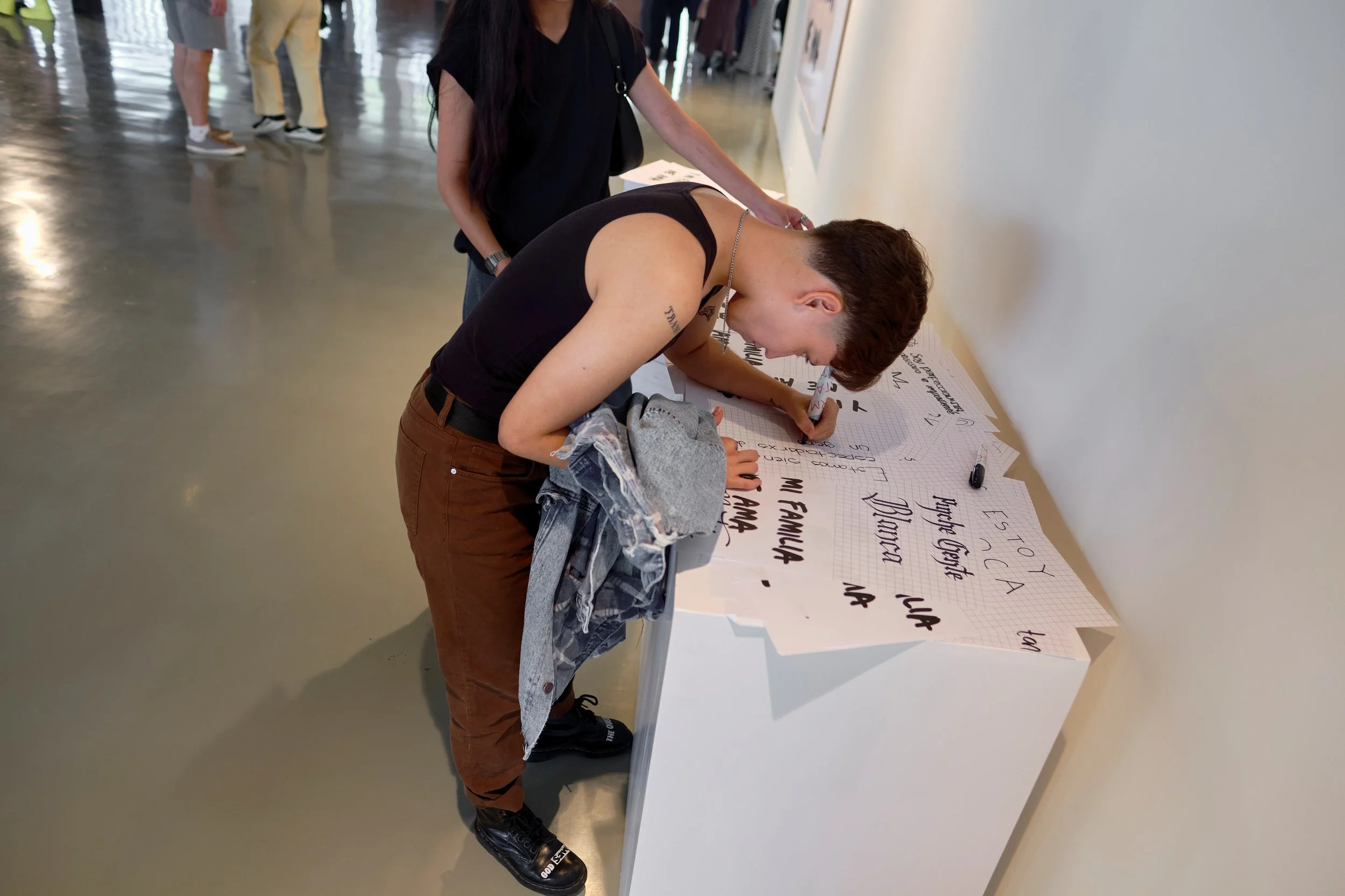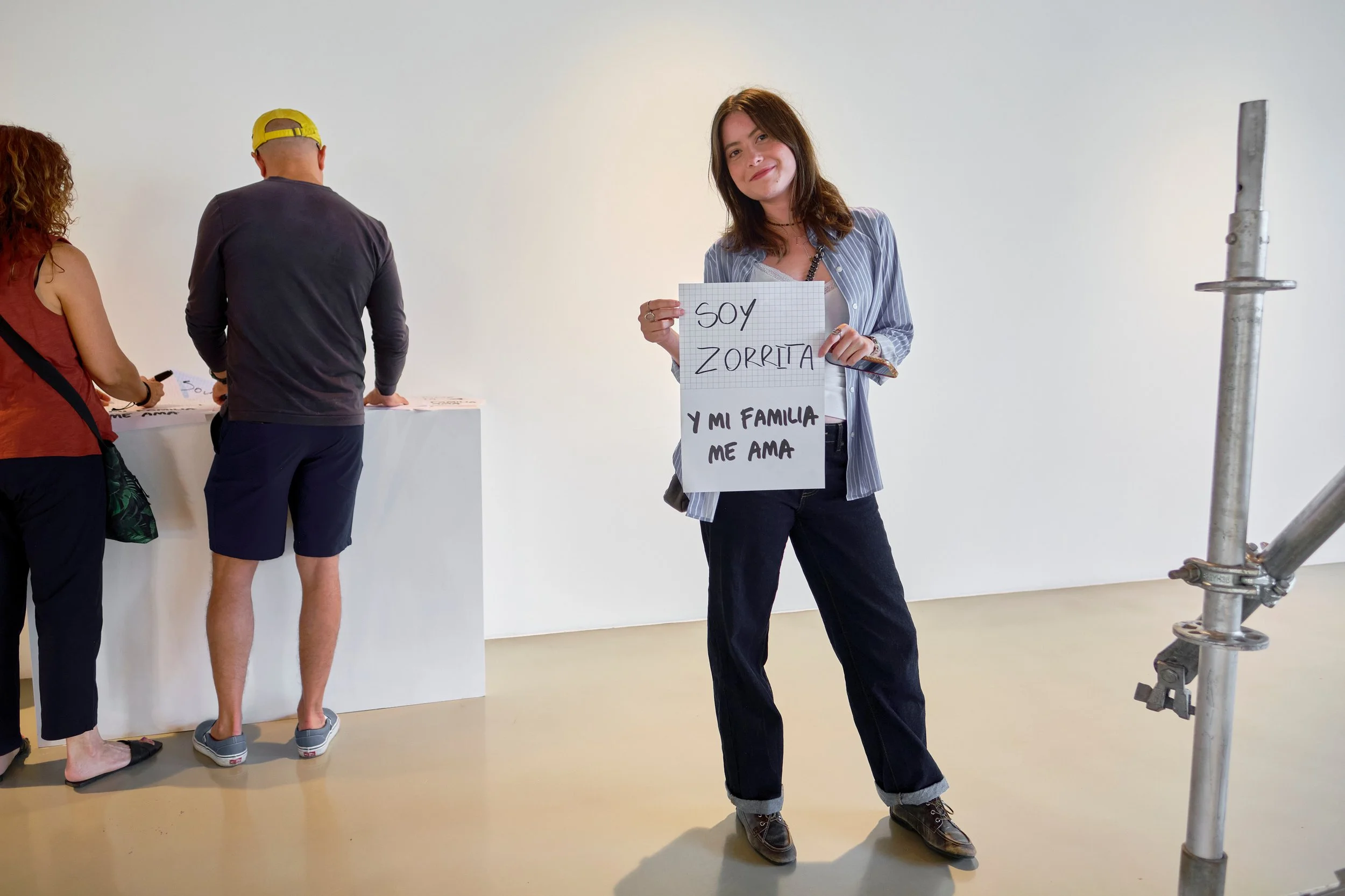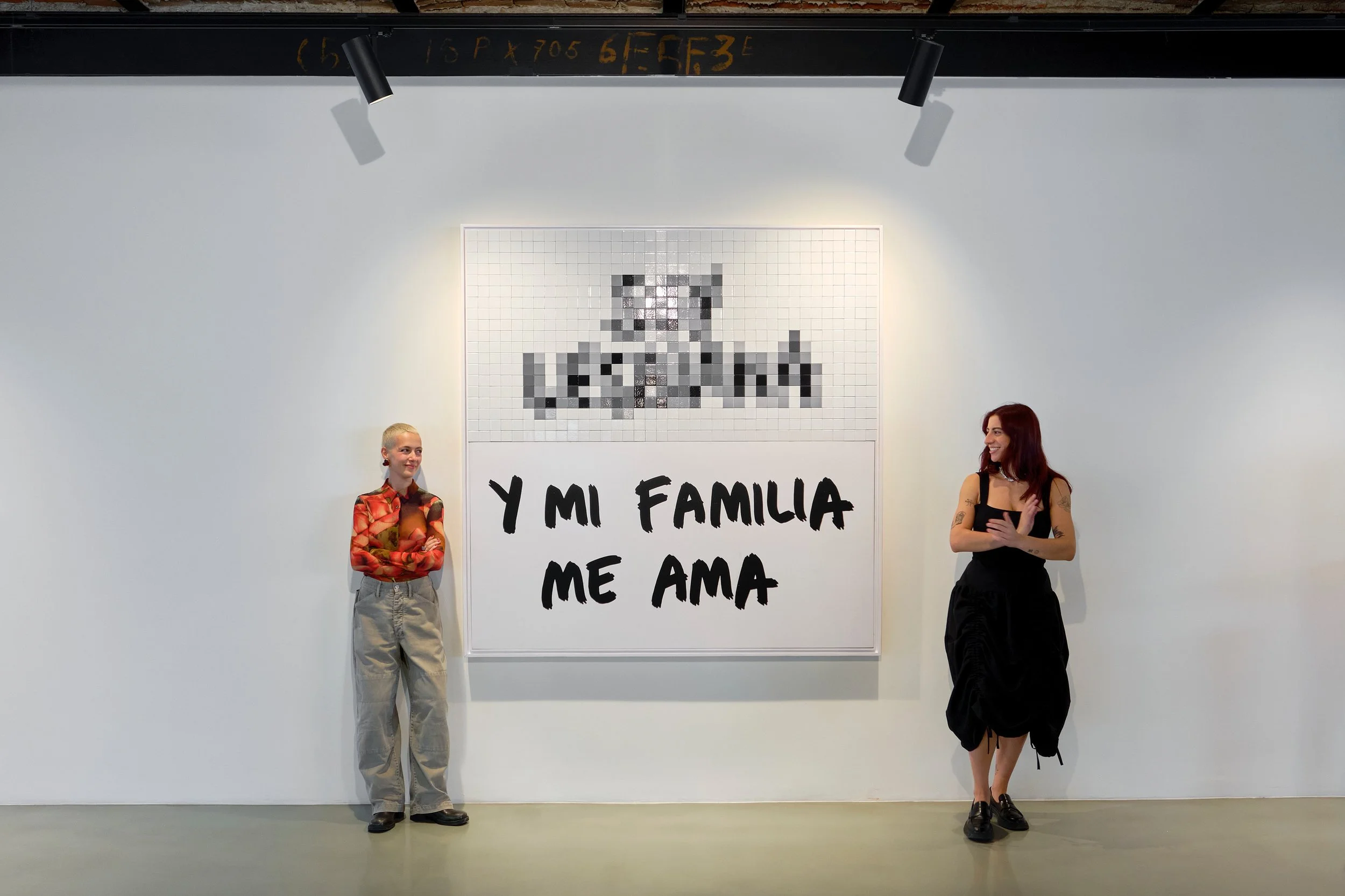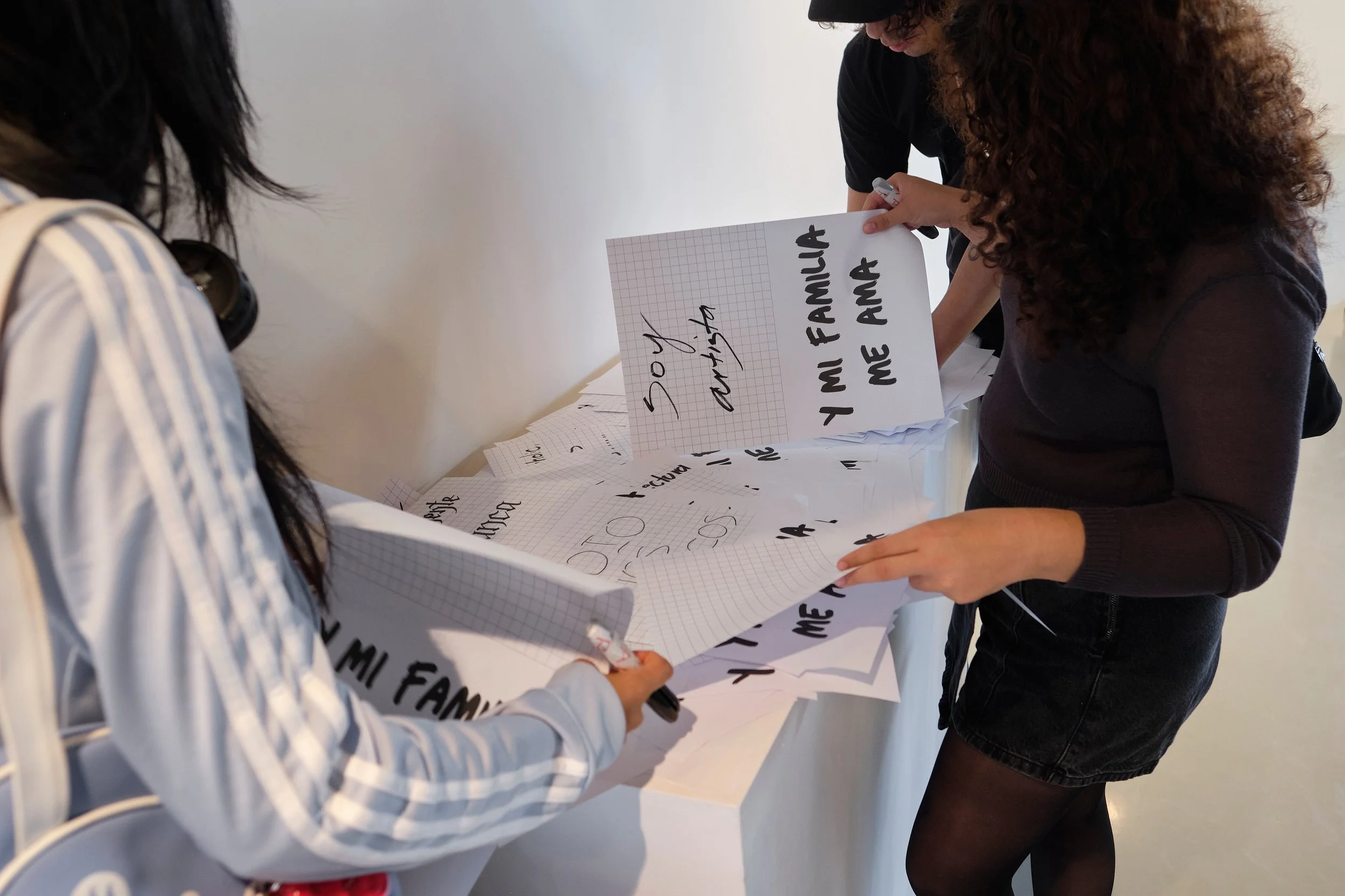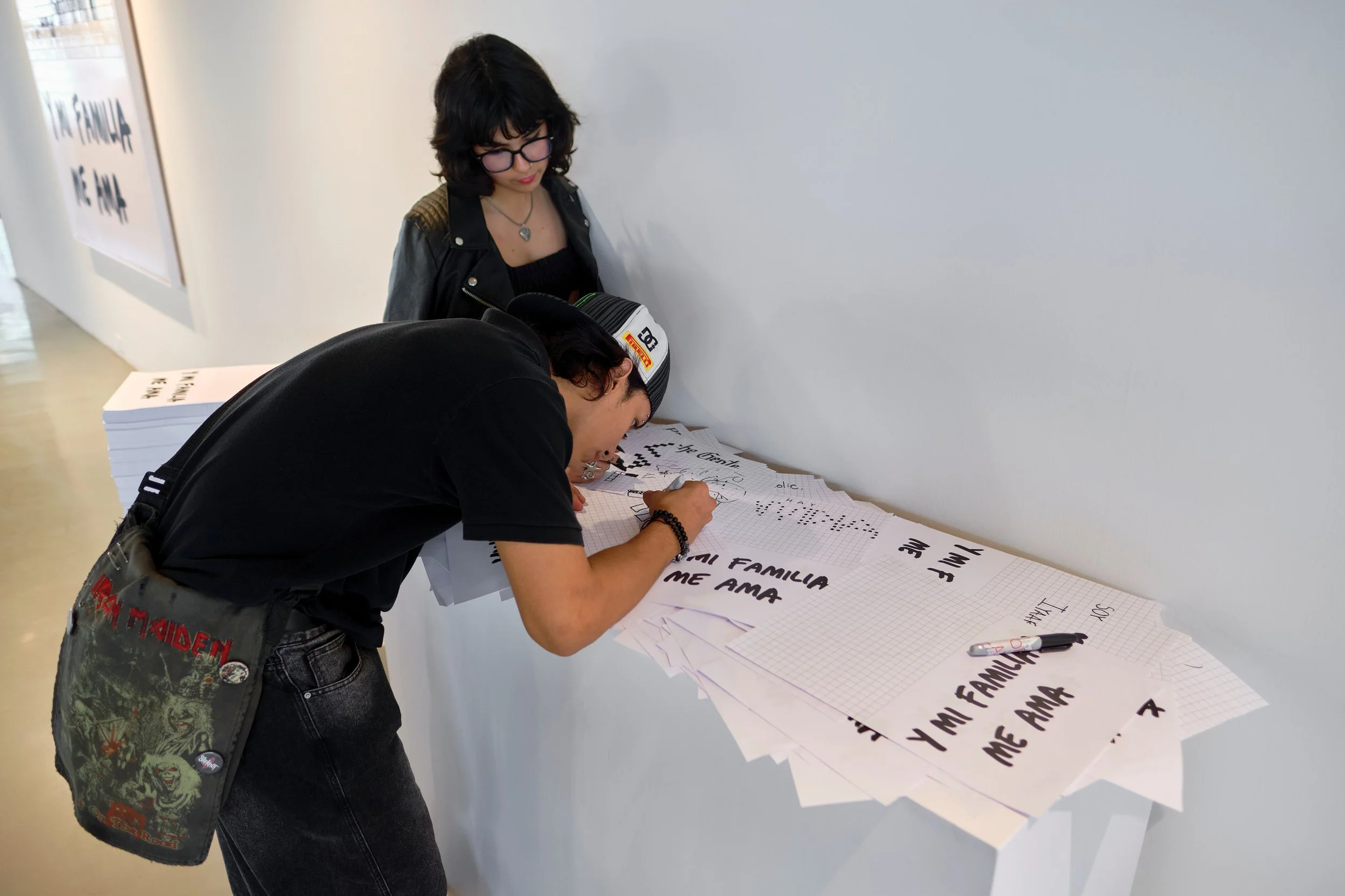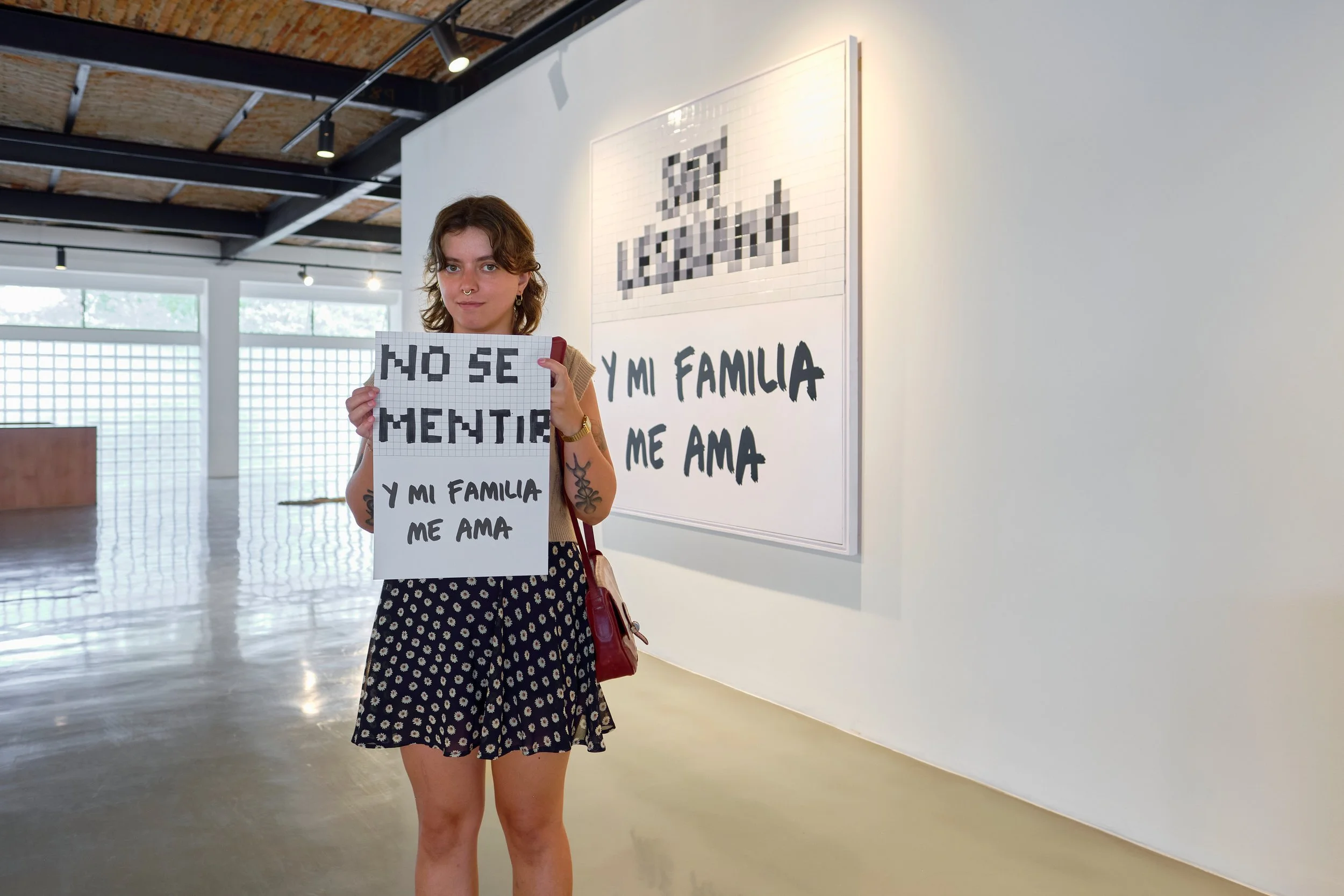Tile by Tile, I Exist (Solo)
In collaboration with Cerámica Suro
June 22 - September 7
Guadalajara, Mexico
Tile by Tile, I Exist, Esra Gülmen’s (b. 1986, Istanbul, Turkey) first solo exhibition in Mexico, continues her exploration of the uncensorable present—a thread that runs through her earlier work, from the rainbow as a symbol (labeled 18+ in her home country) to two people sharing a kiss. The title evokes the ceramic mosaics that compose the pieces: square fragments of bodies suspended in space, reminiscent of censorship or pixelation—visual strategies of distortion. It suggests a whole shattered in an instant, but also a quiet subversion: reclaiming presence tile by tile, recovering identity through care-infused craft. What remains is the intimacy of unruly bodies—scattering like ashes or rippling outward like water. The exhibition unfolds as a ludic space, like a virtual dreamscape. It comprises four works: a site- specific floor mosaic framed in terracotta, a mosaic, a ceramic sculpture, and a wall piece. Gülmen’s Uncensorable series plays with concealment, revealing instead a persistent tension between freedom and desire. Her use of ceramic tiles—a medium shared across cultures and eras, from Byzantine mosaics and Islamic art to Guadalajara’s contemporary visual language—challenges the state-imposed restrictions that shaped her life in the Middle East, in both public and private spheres.
Two Nudes in a Pool channels a childhood yearning: the wish to submerge and float freely, unseen, as water slides over an unguarded body. The work becomes a sanctuary of wildness. In mirrored dialogue with Frida Kahlo’s Two Nudes in a Forest, it asserts same-sex tenderness. Made of dizzying blue tiles, this fluid womb is a site of floating friendship, resisting anchorage, offering instead a sense of continuation, a kind of Viola-esque transcendence into a realm where desire needs no hiding place and performativity becomes liquid.
As Gülmen moved across regions, her commitment to interrogating the suppression of expression deepened. She began to examine the boundaries imposed by governments, religion, and society, as well as the internalization of these forces as self-censorship. In My Third Self-Portrait, the artist turns the gaze upon herself for the first time, confronting these tensions head-on. Her pose recalls her grandfather: sitting confidently, legs spread wide, reminiscent of her child self, who was told to close her legs and “behave modestly.” Here, Gülmen reclaims the space of her body, standing erect, her legs unapologetically open, revealing and concealing a body that has been reclaimed as a site of joy and power.
Y mi familia me ama [And My Family Loves Me] draws from a 2001 photo in the Fondo Documental Patlatonalli archive in Guadalajara. A woman holds a sign reading “Soy lesbiana, y mi familia me ama” (I’m a lesbian, and my family loves me) in front of the city’s yellow-tiled cathedral. Although the image reached newspapers, it was censored, stripping it of its radical affirmation. Gülmen now asks: What role does love play in silencing or revealing truth? What are we allowed to say—or suppress—to be loved? Visitors are invited to complete a blank version of the poster, showing what remains hidden.
Throughout the exhibition, Gülmen asks: What does the body hold? Shame, transition, release. Yesterday’s Feelings offers a playful gesture: throwing emotional burdens away like trash. Created in polyester but rendered in fragile ceramic for this exhibition, it contrasts transformation with permanence—echoing the weight of imposed identities that linger, even after we try to discard them. As she invites us to jump into the pool, Gülmen leaves us with a final question: Where do these feelings go—and how can we transform what remains?
Exhibition text by Museum Director, Romina Beltran

